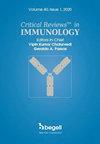The effect of supplementation of vitamin D on hyperlipidemia and bone mass in the pediatric with obesity
IF 0.9
4区 医学
Q4 IMMUNOLOGY
引用次数: 0
Abstract
Objective Vitamin D deficiency is known to be a significant factor in metabolic diseases such as obesity and diabetes. However, there is currently a lack of evidence regarding the effects of vitamin D on hyperlipidemia, glucose metabolism, and bone mass in pediatric patients with obesity. Methods Our study aimed to determine the relationship between Serum 25(OH)D and metabolic syndrome, as well as investigate the effect of Vitamin D3 supplementation on hyperlipidemia, glucose metabolism, and bone mass in pediatric patients with obesity. We conducted a cross-sectional study between January 2018 and January 2020, with a total of 723 children invited to participate. Of these, 283 were in the supplemented group (SG) and 440 were in the placebo group (PG). We evaluated blood pressure, fasting glucose, high-density lipoprotein, total cholesterol, low-density lipoprotein, and bone mineral density (BMD) among all subjects. Results We found that cholesterol, triglyceride, and glucose levels were strongly associated with 25(OH)D3 levels at baseline. After vitamin D3 supplementation, we observed a significant increase in body mass index (BMI) (P=0.02) and serum 25(OH)D3(P<0.01) levels in the vitamin D3 group compared to the placebo group. Additionally, serum lipids such as total cholesterol(P<0.01), HDL-c(P<0.01), Total cholesterol/HDL-c (P<0.01), LDL-c/HDL-c (P<0.01), Triglycerides/HDL-c(P<0.01) were significantly decreased in the Vit D group compared to the placebo group. Serum 25(OH)D was inversely associated with cholesterol, triglycerides, and fasting glucose. Conclusion Our results suggest that vitamin D3 supplementation can enhance the beneficial effect of hyperlipi补充维生素 D 对小儿肥胖症患者高脂血症和骨量的影响
目的众所周知,维生素 D 缺乏是导致肥胖和糖尿病等代谢性疾病的一个重要因素。方法我们的研究旨在确定血清 25(OH)D 与代谢综合征之间的关系,并调查维生素 D3 补充剂对儿科肥胖症患者高脂血症、糖代谢和骨量的影响。我们在 2018 年 1 月至 2020 年 1 月期间开展了一项横断面研究,共邀请了 723 名儿童参与。其中,补充剂组(SG)283 名,安慰剂组(PG)440 名。我们对所有受试者的血压、空腹血糖、高密度脂蛋白、总胆固醇、低密度脂蛋白和骨矿物质密度(BMD)进行了评估。结果我们发现,胆固醇、甘油三酯和血糖水平与基线时的 25(OH)D3 水平密切相关。补充维生素 D3 后,与安慰剂组相比,我们观察到维生素 D3 组的体重指数(BMI)(P=0.02)和血清 25(OH)D3(P<0.01)水平显著增加。此外,与安慰剂组相比,维生素 D3 组的血清脂质,如总胆固醇(P<0.01)、高密度脂蛋白胆固醇(HDL-c)(P<0.01)、总胆固醇/高密度脂蛋白胆固醇(P<0.01)、低密度脂蛋白胆固醇/高密度脂蛋白胆固醇(P<0.01)、甘油三酯/高密度脂蛋白胆固醇(P<0.01)均显著下降。血清 25(OH)D 与胆固醇、甘油三酯和空腹血糖成反比。
本文章由计算机程序翻译,如有差异,请以英文原文为准。
求助全文
约1分钟内获得全文
求助全文
来源期刊
CiteScore
2.60
自引率
0.00%
发文量
14
审稿时长
>12 weeks
期刊介绍:
Immunology covers a broad spectrum of investigations at the genes, molecular, cellular, organ and system levels to reveal defense mechanisms against pathogens as well as protection against tumors and autoimmune diseases. The great advances in immunology in recent years make this field one of the most dynamic and rapidly growing in medical sciences. Critical ReviewsTM in Immunology (CRI) seeks to present a balanced overview of contemporary adaptive and innate immune responses related to autoimmunity, tumor, microbe, transplantation, neuroimmunology, immune regulation and immunotherapy from basic to translational aspects in health and disease. The articles that appear in CRI are mostly obtained by invitations to active investigators. But the journal will also consider proposals from the scientific community. Interested investigators should send their inquiries to the editor before submitting a manuscript.

 求助内容:
求助内容: 应助结果提醒方式:
应助结果提醒方式:


